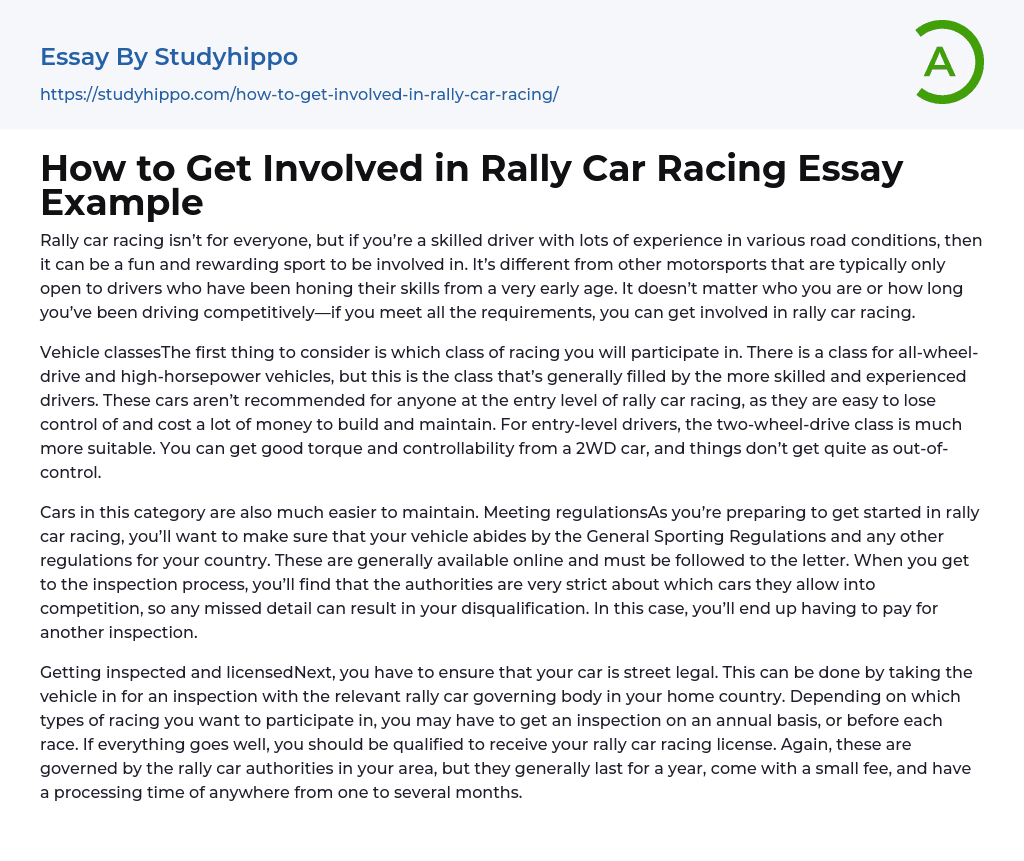While it may not be appropriate for everyone, rally car racing can provide enjoyment and fulfillment for skilled drivers who are capable of navigating through a variety of road surfaces. Unlike many other types of motorsports that have strict qualifications for participation, such as requiring years of training from a young age, rally car racing welcomes individuals who meet the necessary criteria, regardless of their background or previous competitive driving experience.
The vehicle class is the first factor to consider in rally car racing. Those starting out are advised to choose the two-wheel-drive class for better controllability and torque. The all-wheel-drive and high-horsepower class, on the other hand, is typically dominated by skilled drivers and requires substantial financial investment for construction and upkeep, making it unsuitable for novices.
If you want to start rally car racing
...with cars in this category, it's important to follow the General Sporting Regulations and any other regulations for your country. These rules are usually available online and must be carefully followed. The authorities conducting inspections before competitions are strict about which vehicles qualify, so every detail should be considered to avoid disqualification. Failing an inspection would require another inspection fee.
Prior to engaging in any form of racing, it is necessary for your car to undergo examination and obtain a license from the relevant governing authority within your country. The frequency of inspections may vary depending on the type of race you wish to participate in and can range from yearly checks to pre-race evaluations. Assuming all requirements are met, local officials will grant you a rally car racing license which lasts for one year and incurs a small charge. However, processin
times can take anywhere from one month up to several months.




